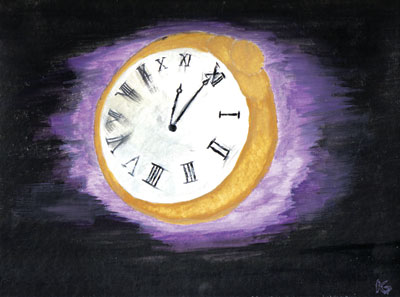All Nonfiction
- Bullying
- Books
- Academic
- Author Interviews
- Celebrity interviews
- College Articles
- College Essays
- Educator of the Year
- Heroes
- Interviews
- Memoir
- Personal Experience
- Sports
- Travel & Culture
All Opinions
- Bullying
- Current Events / Politics
- Discrimination
- Drugs / Alcohol / Smoking
- Entertainment / Celebrities
- Environment
- Love / Relationships
- Movies / Music / TV
- Pop Culture / Trends
- School / College
- Social Issues / Civics
- Spirituality / Religion
- Sports / Hobbies
All Hot Topics
- Bullying
- Community Service
- Environment
- Health
- Letters to the Editor
- Pride & Prejudice
- What Matters
- Back
Summer Guide
- Program Links
- Program Reviews
- Back
College Guide
- College Links
- College Reviews
- College Essays
- College Articles
- Back
Virtual Violence or Violence in Reality?
Would you get enraged or aggressive when you lose a game? Perhaps you have some violent video games in your past? Video games are well known for their entertainment value for a wide range of ages. Video games have many types of genres like action, adventure, and role-play. Young kids who play these violent video games tend to grow up more aggressive than others, which could lead them to commit violent acts in reality (not just alter-reality), and a simple way to solve this issue is to restrict their usage of these violent video games or even make it illegal for kids too young to play own them.
According to Time Magazine, with all these types of video games available, 90 percent of the video games kids play include mature content, specifically violence. When it comes to violent video games with a “mature” rating, Grand Theft Auto and Call of Duty are the some of the most well-known and played games by teens. Both these games were made for teens of age 17 and up, yet kids who are years under that recommended age group play them. Grand Theft Childhood’s report from a 2008 study showed that 60 percent of boys who played a mature rated video game has physically hurt another. This is clearly showing that kids under that mature rating age group that are playing games like Grand Theft Auto are showing negative and violent effects from playing them.
Because of these young kids playing these games not meant for them, they become more aggressive or violent in reality making them a danger to those around them. According to an article, violent video games make young kids feel happy and pleasured knowing that they can cause pain. This once again makes them a danger to others around them.
Some say that video games are just a game, it doesn't affect us. This is completely false due to the fact that research shows that 60 percent of boys having played a violent game have hurt others physically. Another reason they say so is that playing violent video games helps them relieve their anger and stress. While playing these video games can do these things, it’s not certain and it could not be for all people. Let’s say a kid is really angry and they play a violent video game. As they play this violent video game they get more angry or aggressive and start thinking of doing violent actions. It is a possibility.
Violent video games is one of the many genres of video games to play and is meant to be played by 17 year olds and up. Even though these games have the mature rating, young kids still play it. Because they play these games, research has found that they become more aggressive in reality. And the cause of this is because they have access to these games and parents buy these games for them. The simple solution is to restrict their access or even make owning these games illegal. Others say that violent video games don’t affect others yet research proves false.
Violent video games have a mature rating for a reason. They are meant for ages who are mature enough to play them. This being said, this is why violent video games should not be allowed to be owned by anyone who is too young of age to be playing these types of games.
Cites
http://time.com/34075/how-violent-video-games-change-kids-attitudes-ab
out-aggression/
http://videogames.procon.org/
Lawrence Kutner and Cheryl K. Olsen, Grand Theft Childhood: The Surprising Truth about Violent Video Games and What Parents Can Do, Apr. 2008
Dave Grossman and Gloria DeGaetano, Stop Teaching Our Kids to Kill: A Call to Action against TV, Movie & Video Game Violence, 1999
Cheryl Olson, Lawrence Kutner, Dorothy Warner, Jason Almerigi, Lee Baer, Armand Nicholi, and Eugene Beresin, "Factors Correlated with Violent Video Game Use by Adolescent Boys and Girls," Journal of Adolescent Health, July 2007

Similar Articles
JOIN THE DISCUSSION
This article has 0 comments.
